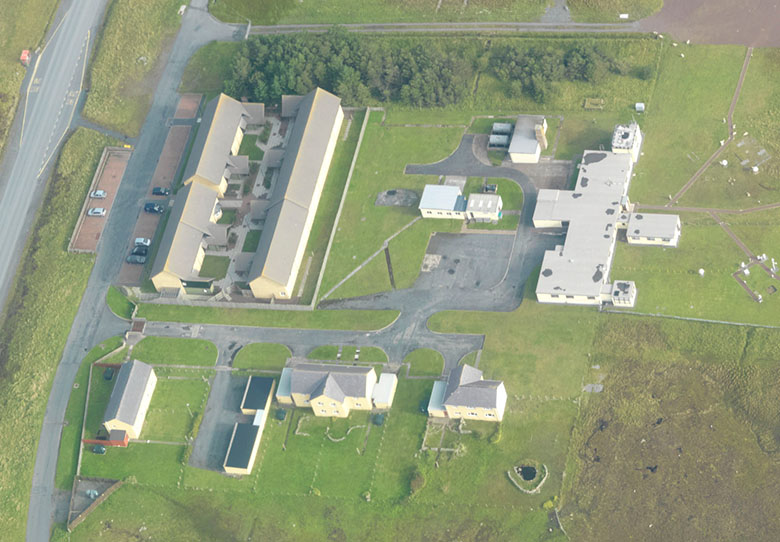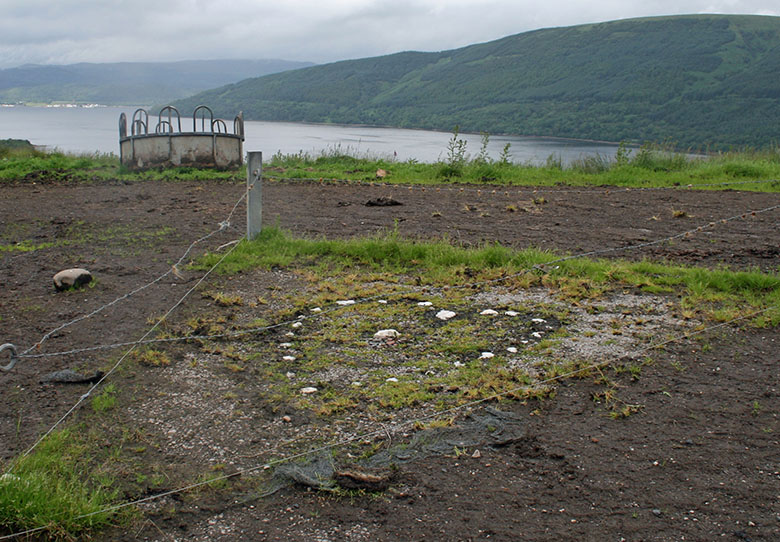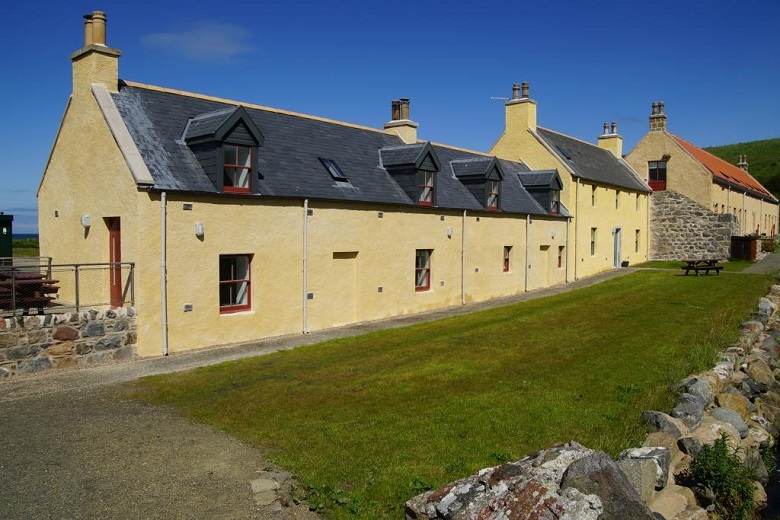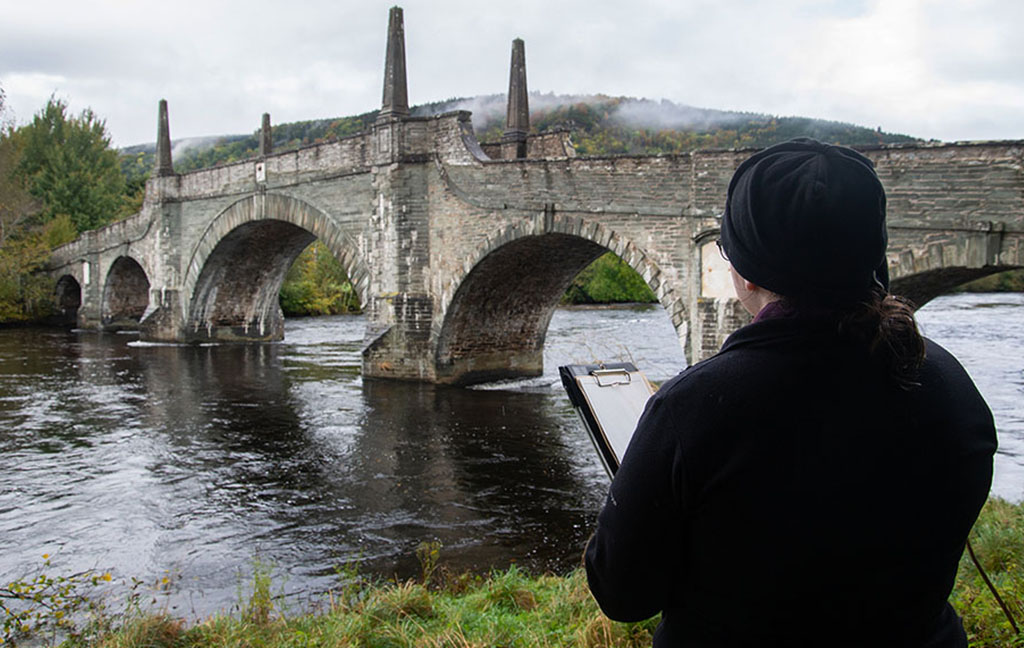Back in 2016, we asked ‘What’s Your Heritage’?
We learned your heritage could be places you care about, stories you love or the language you speak. You told us that heritage matters for all sorts of reasons. We learned people want to find out how to explore their heritage, understand it, celebrate it, and make sure it’s recognised.
If that’s what you want to do, our Talking About Heritage Guides can help.
Over the past couple of years, we’ve brought together ideas, information, and case studies from across Scotland in a handy toolkit.
Our online guides are in four parts and you can jump to the one that suits you or download our guidance in full as a pdf.
Investigate heritage
Do you ever wonder how to go about finding out more about your community’s heritage? And once you’ve investigated it, how you might make a record of that?
Well, you could follow this example from Shetland. In 2016, members of the Lerwick community came together to make a record of the Lerwick Observatory. The group, which included several former employees and local supporters of the observatory, was concerned that a huge amount of information about the site was at risk of being lost.

Lerwick Observatory opened around 1919-21 on the site of a First World War naval station. Take a closer look on Canmore.
Together, the group compiled an oral history, photo archive and film about Lerwick Observatory. Their efforts celebrate its significance in the history of science, and its part in the social history of the Shetland Isles.
“The fact that there’s this long history, and this connection through the workplace that made such an impact on his personal life is something that is worth so much.” — Denise Nicolson, whose father worked at the observatory.
Find out more in this short film:
Investigating heritage is a journey of discovery. This journey can be fascinating and exciting. Often, it is also thought-provoking.
There’s lots of resources out there but it can be difficult to know where to start. Our Investigate Heritage resources will help you to research and record heritage. It brings together lots of helpful resources to explore and provides real-life examples.
Understand heritage
Once you’ve investigated and documented your heritage it’s time to understand and interpret it. For instance, if you can provide evidence to show that the place you love is culturally significant or unique this can help you access a whole range of support. If you’re approaching funders or asking us to schedule or list a place, this sort of information is vital.
For example, when Scotland’s Traveller community wanted to protect an important part of their heritage — The Tinkers’ Heart — they worked together to record and demonstrate its cultural significance.

The Tinkers’ Heart photographed in 2012, before the community applied for funding to improve the protective fence.
The Tinkers’ Heart is a heart of quartz stones set into the tarmac of an old road junction. The exact date that the heart first came into being is unknown. Oral tradition among the Scottish Traveller community says that the Tinkers’ Heart was originally created by Traveller women as a memorial to honour Traveller men who had fallen in the Jacobite Rising of 1745.
When we were first approached about the Tinkers’ Heart, we weren’t convinced that it met the criteria to be recognised as one of Scotland’s nationally important sites. However, the Scottish Traveller community worked hard to gather evidence. Ultimately, they presented a strong case and in 2015 we recognised the Tinkers’ Heart as a scheduled monument.
“It was where travellers married […] where women took their babies to be blessed […] where the dead came to be blessed before they were buried […] Because Travellers didn’t belong to any church, they didn’t have any particular place.” — Jess Smith, Scottish Traveller.
Our Understand Heritage resources have been designed to help you show what makes an object, building or tradition worth looking after.
Celebrate heritage
Have you ever wished people understood you or your community better? Society hasn’t always been great at recognising and recording the history of marginalised, repressed or exploited communities. In many cases, it has been actively erased.
When more people learn about your heritage they can help you to celebrate and protect it. Perhaps it can help increase compassion, build bridges and start conversations about positive change. Sharing knowledge adds to everyone’s understanding of our past.
You can find out about contributing to archives, applying for a commemorative plaque, or developing on site interpretation and learning resources in our Share and Celebrate Heritage resources.
In 2019 the Scottish Civic Trust and community groups got together to record and celebrate the places in Edinburgh and Glasgow that have significance to LGBT+ people. Queering the Map not only recorded the positive experiences and history of people within the LGBT+ community, but also negative experiences. This helped consider how an environment can be experienced very differently depending on who you are.
Care for heritage
Caring for Scotland’s heritage can mean lots of different things. Listing and scheduling can put in place legal protections. Investing in heritage through conservation or sensitive repurposing keeps Scotland’s historic places at the heart of our communities.
A great example of this comes from Portsoy. There, the community is taking an innovative approach to making the most of their heritage. For instance, they’ve turned derelict harbour buildings into a boat-building workshop and restored a former salmon house as a museum. In addition, they repaired and converted a group of 18th-century listed buildings into 4-star hostel accommodation to house residential students at boat-building courses.

The hostel at Portsoy. © Paul Higson/NESPT.
Take a look at our Protect and Care for Heritage resources for tips on:
- engaging with the planning system,
- exploring how community projects can bring heritage back to life,
- getting involved in monitoring the condition of places that are important to you,
Talking About Heritage with us
We’re really keen to support more people to start talking about their heritage. It has so many benefits. From the joy of reminiscing to the excitement of learning from the past to plan for the future, talking about heritage is really important. In other words, the social, cultural and economic benefits that come from talking about heritage are real!
Sign up to the next Community Heritage Conversations event on 8 June to find out more about Talking About Heritage.

